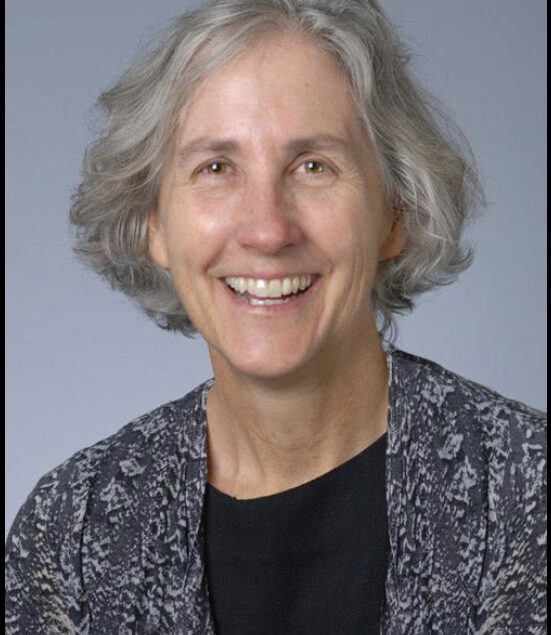Community Health Workers are frontline public health workers who have a trusted relationship with the community and facilitate access to a variety of services and resources for community members. Building CHWs into the continuum of care has been proven to both improve health outcomes and reduce healthcare costs… especially when it comes to preventing and self-managing chronic diseases.
The evidence that Community Health Workers cut healthcare costs and improve outcomes was clear several years ago- but it’s been a multi-year process to put together the infrastructure to build them into Arizona’s healthcare network. Education and training the workforce was critical of course – but we also needed a process to credential CHWs so they could be reimbursed for their work through health insurance and Medicaid claims.
We also needed training sites that could supply the curriculum that builds the knowledge and skills. Finally, AHCCCS needs to embrace the use of Community Health Workers and authorize their reimbursement via claims and encounters.
That’s a lot of work… work that took several years requiring community groups working in tandem with state and county government, community colleges and academia to make it all happen. Luckily, we had the Arizona Community Health Workers Association (AzCHOW) to help provide that grassroots community input to help drive the process and facilitate development of the workforce.
Credentialing
How was AzCHOW able to do it? They got a big boost back in 2017 when the 2017 the Vitalyst Health Foundation provided AzCHOW with a $123K Innovation and Medical Assistance Grant.
We can save money and lives with community health workers | Heather Carter
AzCHOW’s work paid off with a big victory in May 2018 when then Representative Heather Carter worked super-hard to pass HB2324, charging ADHS with developing a voluntary certification process for CHWs. Sadly, that relatively simple rule package wasn’t a priority for then Director Christ and the responsibility for developing the rules languished for 4 years before the department established the certification process.
Last Summer ADHS’ rule package was finally approved by the Governor’s Regulatory Review Council and the voluntary certification process will officially be in place on November 7, 2022.
The ADHS rules prescribe the CHW scope of practice and core competencies; qualifications; standards for education and training programs; continuing education requirements, and criteria for granting, denying, suspending, and revoking a certificate; and set up and collect nonrefundable fees for certification as a community health worker. See the final regulations here.
Curriculum Development & Training
As AzCHOW and the rest of the system waited patiently for ADHS to finally get their certification rules finished AzCHOW continued to work with Central Arizona College and Scottsdale Community College to set up curricula to prepare the workforce for certification. For example, SCC started their 1st cohort of scholars in their Community Health Worker Program this fall. They even partnered with Mercy Care to provide $1,000 Scholarships.
Community Health Worker Program at Scottsdale Community College
- Step 1: Apply for admission to Scottsdale Community College
- Step 2: Fill out and return the CHW Program Application according to form instructions.
For more information, fill out this online form or contact Pooja Paode, Program Director: pooja.paode@
Reimbursement
The prep work is just about done to really plug CHW’s into the care network – where they can begin reducing improving health outcomes and reducing costs at scale. ADHS finally finished their credentialing work and have promised to open the portal to apply for certification on November 8. Scottsdale Community College & Central Arizona College have training programs in place and AzCHOW has been prepping the workforce.
The next big step is to build a funding pipeline so CHWs can get reimbursed for their work. There are many CHWs and CHRs already working in the field – but they’re mostly being paid with administrative funds from AHCCCS’ contracted Managed Care Organizations. The real workforce scale-up will happen once AHCCCS contracted MCOs can start sending claims and encounters to AHCCCS for their work.
19 of the 22 tribes in Arizona employ CHRs. CHRs have traditionally been funded through the IHS system. CHRs currently make up roughly 30% of the CHW workforce in Arizona.
Fortunately, current AHCCCS totally gets the importance of building the CHW reimbursement pipeline and is working hard to make that happen. The first step is to amend their State Plan Amendment with the Centers for Medicare and Medicaid Services. At a very informative webinar last Friday, AHCCCS committed to turning in a State Plan Amendment before the end of 2022 and expect to get CMS approval by March of 2023. See the AHCCCS PowerPoint.
The SPA language is succinct: “Certified Community Health Workers (CHW) acting within their scope of practice as defined in state law may provide AHCCCS-covered patient education and preventive services.” Education and training for patient self-management by a qualified, nonphysician health care professional using a standardized curriculum, face-to-face with the patient (could include caregiver/family) each billed in 30 minutes increments.
-
- 98960- patient education & training for 1 patient for 30 minutes.
- 98961- for a group of two to four patients.
- 98962- or a group of five to eight patients.
Summary
It has taken many long years to build the infrastructure to use the skills of Community Health Workers at scale within Arizona’s healthcare network. Kudos to the network of hard-working and tenacious folks that have been working toward this goal over the last several years!

